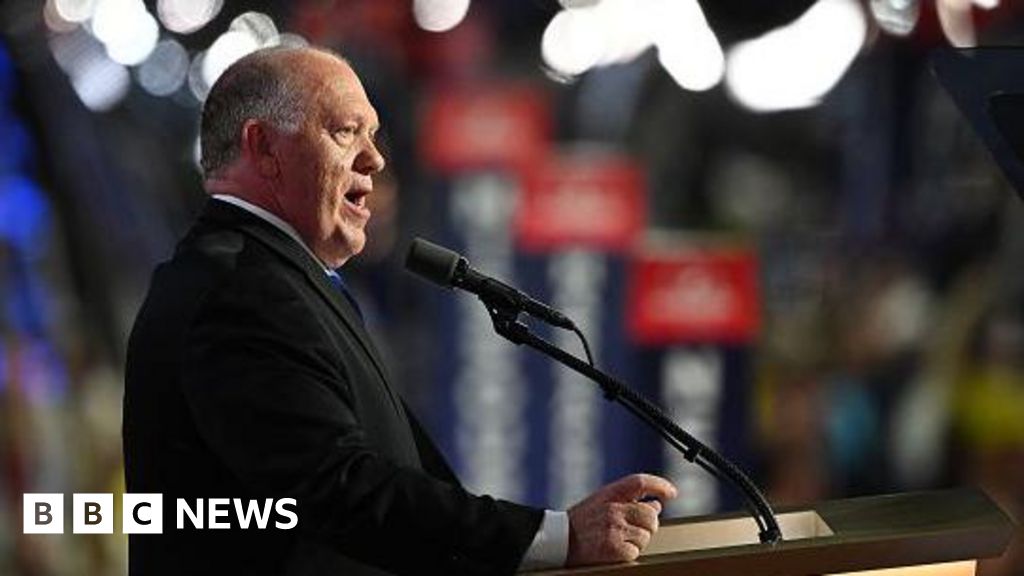'They had all the reasons not to vote for one candidate but no reasons to vote for the other'
the weird thing is that, on a broad scale, like.
so most american are liberal capitalists. they like the best deal within that system. no? like, even the republicans' well-marketed protectionism and dirty industry operates within that logic. talking, like - post smith. it's all liberal capitalism. at the same time, they want change. they want the same, but different. understand that "radical" change-oriented people like bernie still operate well within a capitalist system, the issue then is selling it. and while the democrats failed rhetorically, they did not do so in regards to presenting substance on a pure logos level. i'm sorry, they just didn't.
this guy, who's probably very famous and such but whom i don't know, is very charismatic about it, and his point is basically that the democrats failed to make claims for change and address anxieties. however, there's some issues here.
first off, when americans want things to be different, they usually still operate within liberal capitalism. so they actually don't. their vote depends still on the policy within that system. so it's about making the best offer, if that was the only issue.
harris was very explicit about the concrete policy they were going to do. like, a lot. they talked about it all the time. on a broad level, they wanted to increase taxes on the wealthy, implement a number of tax breaks for small businesses, make (more) cost control through sheer legislation, there was minimum wage talk. it's actually consistently annoying that the shpiel about how the democrats failed is that they understated or ignored marketing their economic policy, as well as adressing anxiety. they did that. they did that a lot. but it didn't connect. and there's a few reasons for this to me.
so this guy loudly asks "what are her policies", while making a hand smack for emphasis, and i think this was frustrating to follow throughout the campaign, because most people had the same impression as this guy (even if his impression is performative, again, i don't know him; he clocks it). the default impression is that it's the reps that are pro-business, while dems, being pro-regulation, are somehow bad for business. harris consistently turned out with a laundry list of concrete implementations she planned to do, and while she often talked around the questions provided, make note of that: she
had to document plan upon plan on what they were going to do while trump could literally rant about a guy's scrotum for 15 minutes and still be trusted on economic policy. it's a big optics issue for the democrats, that they have to overcome while the reps can just vaguely rant about immigrants while still being trusted on this.
people said over and over again that she wasn't talking economic policy; and i'd like to ask anyone curious to watch some of the rep outlets talk about her economic policy, because this was particularly fascinating. they kept asking "but what is her actual policy?" "how does she plan to counteract inflation?" while her campaign touched on that daily. they would ask, get an answer, turn around, and then ask each other, "but what is her economic policy?"; the soundbytes hit so hard i still have them echoing in my brain, even if i rationally know she talked about this stuff all the time and had to carefully answer with concrete percentages and affected demographics each and every time.
so there wasn't an issue of economic policy, or not even stating it. while i hold the democrats have very much made their own bed, there is a big part of the equation that has to do with media out of their control. mr rural driving his semi truck is on talk radio hearing these soundbytes over and over again. the host can even cite harris literally talk policy and then discuss with a guest whether she has made her policy explicit. it happened all the time. it's mental.
now, there's a second part of the equation, and it's in the cross section between tariffs and taylor swift (as ranted about in the short video here). as a celebrity, swift indeed draws clicks in media, but as we saw, it didn't translate into votes. she's already succesful, and not in a way that particularly helps the democrats increase their voter margin. at least irt economic policy. say what you will about musk, but he is at least understood as a businessman at some level. so when it comes to selling economic policy, musk clicks ensures votes better than swift. then there's tariffs. as completely bonkers banana pants trump's tariff policy is, specifically because of its bonkersness, it does three things very well; 1 - it is a liberal capitalist policy, so it tells you you're safe and things won't change; 2 - it is bonkers, so people talk about it, which is free marketing; 3 - its bonkersness means that it means some form of change, with the implication of radical. now, this is all incongruous, but i'm saying that on an impulse level, it sells well, because it markets itself, and then it's both completely comfortably safe while being a radical hail mary. stuff like that is exciting to vote for, while feeling comfortable enough that the murican life won't be different. discussing intricacies of tax policy just doesn't sell as well. it's why us infrastructure is horrible. everyone knows it's good for you, but at the booth, it's just granular money allocation over boring asphalt.

 Thinking about it... Does that mean AOC is going to win if she runs next cycle/2028?
Thinking about it... Does that mean AOC is going to win if she runs next cycle/2028?


